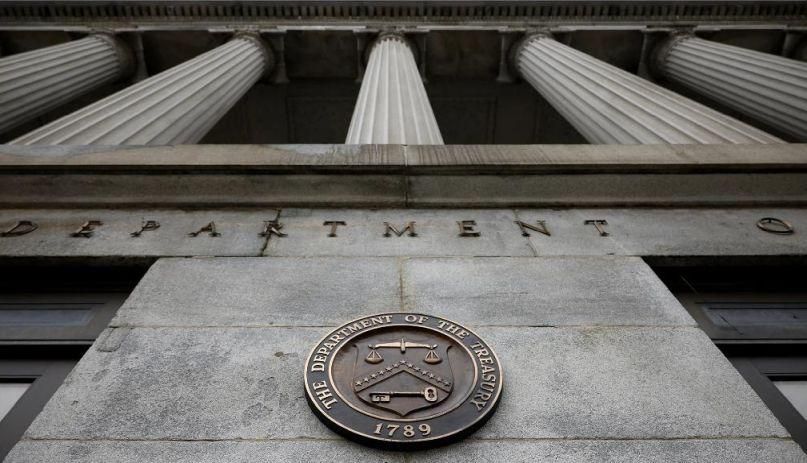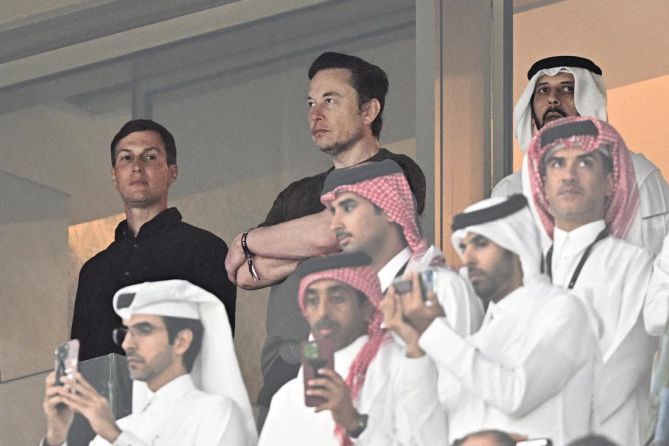By Eric Vandenbroeck and co-workers
The Real Ambitions of Musk
While
we recently reported on Musk, a more consequential struggle is whether some
of Washington’s most important allies, struggling with their domestic problems,
can resist interference with their sovereignty by a man whose net
worth roughly
equals Russia’s entire 2025 budget. Especially when that man has Donald Trump’s ear.
Musk Again.
Europeans are quickly
learning a lesson that Americans internalized years ago: They ignore Elon Musk
at their peril.
Until recently,
Europe’s main challenge from Musk was mustering the means to enforce tech and
trade rules on a billionaire mogul whose firms’ annual revenue exceeded British or
German yearly defense spending.
The issue now is
whether Musk can ride roughshod over European politics, dominating them as U.S.
corporations dominated Central America’s so-called banana republics more than a
century ago.
Or, more bluntly: Can
Musk manipulate Germany or Britain as the United Fruit Co. once subjugated
Honduras?
That should be a
preposterous question, given that Berlin commands the world’s third-largest
economy, and London the sixth. Yet with an escalating bout of dyspeptic tweets,
the world’s richest man — who also happens to control a Tesla car factory near
Berlin that is on course to dwarf any
German Volkswagen or Porsche plant — has plunged both countries’ politics into turm.

The more urgent
example is Germany, where Musk intervened
just weeks before its
federal elections. Even more extraordinary, he has thrown his weight behind
an anti-American, Russia-loving, climate-change-denying populist party
whose leaders include
Nazi apologists and antisemites, along with run-of-the-mill deportation
enthusiasts.
The party,
Alternative for Germany, known by its German initials AfD,
is Germany’s “last glimmer of hope,” as Musk wrote in
Germany’s conservative Welt am Sonntag newspaper. Germany’s domestic intelligence
service would disagree; it has designated some of the party’s elements as
extremist and placed them
under surveillance.
Conventional wisdom
is that AfD, despite polling second ahead of the Feb.
23 elections, will be boxed out of any coalition government by the combined
forces of Germany’s traditional left- and right-of-center political blocs. That
was also the conventional, and wrong, thinking before the 2023 elections in the
Netherlands, when a populist
anti-Muslim party shocked
analysts by finishing first. It now leads that country’s governing coalition.
In that context, it
sounded almost like wishful thinking when a German government spokesman sniffed this
week that it is
“simply not the case” that Musk’s social media meddling could “influence a
country of 84 million with untruths or half-truths or expressions of opinion.”
Top European leaders
have warned Musk to
mind his own business, or have
counseled cool indifference. “Don’t feed the troll,” German Chancellor Olaf
Scholz told the
German weekly Stern.
This week, British
Prime Minister Keir Starmer launched a
counterattack after he
and his center-left Labour government, in office just
six months, suddenly became targets of the mercurial billionaire’s online assaults. Musk had accused them of complacency in a
more-than-decade-old scandal involving gangs, composed
mainly of British Pakistani men, that reportedly groomed, abused and raped underage
girls.
Much of what Musk has
alleged is wrong but,
to him, the point isn’t the facts. It’s the power, and how he can wield it to
dominate the spotlight and force his will.
One day, he was
discussing bankrolling
Britain’s right-wing Reform Party, led by a far-right populist, Nigel Farage. Soon
after, he was demanding
that Farage be deposed. The
supposed reason for the rupture — a difference of
views over a jailed
British former soccer hooligan turned provocateur — is hardly worth unpacking.
Musk’s leverage owes
much to his fortune (now approaching a half-trillion dollars), and legions of
followers (211 million on his social media platform X). Perhaps just as potent
is the opening afforded by Europe’s mounting failures, jitters, and despair.
Musk’s meddling suggests a toddler’s attention to truth and consistency, but
his basic analysis is on target.

“The traditional
parties have failed in Germany,” he wrote in Welt am
Sonntag. “Their policies
have led to economic stagnation, social unrest, and the erosion of national
identity.”
Musk has scheduled a
discussion to be live-streamed on X this Thursday with the leader of AfD, Alice Weidel, the party’s first-ever candidate for
chancellor. Weidel is a relative moderate and is a lesbian who has adopted two
children with her Sri Lankan-born partner. “Does that sound like Hitler to
you?” Musk said on X.
Never mind that
Weidel has defended AfD extremists, including a
prominent figure twice fined for using a banned Nazi slogan in his speeches.
Musk, whose $277 million
backing for Donald Trump’s campaign was the biggest contribution in last year’s (or
any year’s) presidential cycle, has made little secret of his contempt for
Europe, singling out its plummeting birth rates — “Europe is dying,” he wrote — and soaring migrant population.
He has been
especially incensed by the European Union’s Digital Services Act, which
requires online behemoths to block and remove false content. To Musk, who faces
the possibility of hundreds of
millions of dollars in fines arising from X’s alleged violations of the DSA,
it’s a mandate for censorship.
That regulatory
dispute, among others, is ongoing. A more consequential struggle is whether
some of Washington’s most important allies, struggling with their domestic
problems, can resist interference with their sovereignty by a man whose net
worth roughly
equals Russia’s entire 2025 budget. Especially when that man has Donald Trump’s ear.
For updates click hompage here